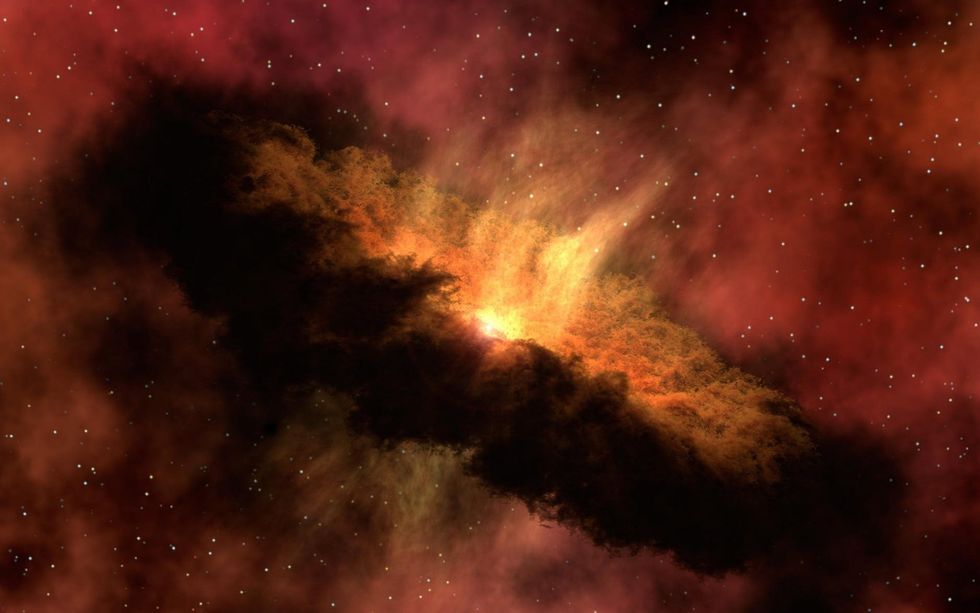Named after the physicist Enrico Fermi, the Fermi paradox serves as an explanation as to the existence—or lack thereof—extraterrestrial life that hold the complexity of human civilization. To date, the Kepler space mission suggests there are 40 billion planets similar to Earth's size; 11 billion of said terrariums orbit stars similar to our sun in both size and trajectory. There's reason to believe that more planets in our universe exist with conditions identical to Earth, yet there is little sign of intelligent life on these other planets. A simple explanation as to why there are no indications we can detect could simply be that observing these planets to such a degree of detail is beyond the bounds of our current technology. But, what else could account for the existence of human civilization and our inevitable fate?
In comes the Great Filter explains the dawn of the conundrum that is life. It is known that primordial, organic compounds interacted with one another to create prokaryotes, the dawn of life. From there, primitive eukaryotes evolved and engulfed some prokaryotes; instead of consuming the smaller cell, a eukaryote provided it shelter and resources while the latter provided energy to make more complicated structures. This laid the foundation for multicellular organisms to evolve into species who efficiently use tools and ascends to higher levels of thought: humans. Finally the stage was set for technological revolution, enabling space travel and potential colonization of planets thousands of years down the line.
Think of these milestones as a staircase, each of which vary in height. The Great Filter is the steepest step that is unlikely for a species overcome, an event so improbable that even with billions of planets like ours only one seems to have the conditions to foster complex life. The Great Filter insinuates that there is one step in the evolution of life that needs to be overcome in order for interplanetary conquest of humans to be a reality. It also suggests that the inability to master this step would result in the doom of the human race, such as the lack of resources or pandemic from overpopulation. Other factors that may aid the ability to conquer the cosmos could also result in our destruction. The real question is have we past this step or is there another milestone to overcome in order to achieve planetary colonization?
One contender for the Great Filter is the mastery of nuclear energy. From Chernobyl to the Cold War, nuclear energy and weapons have a permeating geopolitical influence on war and sustenance of larger scale projects. The very resource that could provide labs with new bounds of energy for higher tech equipment can lead to the destruction of life on Earth due to its destructive power and toxic byproducts. Could the failure of mastering nuclear energy have impeded the development of societies in the far reaches of the universe?
Another potential hurdle would be the failure to master AI or nanotechnology. Ray Kurzweil, a director of engineering for google, projects that by 2030 it would be possible to immortalize one's memories onto the virtual cloud as well as receive and send emails directly to the brain. This would be possible via the implantation of nanobots bound freely in the capillaries of the brain. On one end, a brilliant mind can transcend the bound of flesh and continue to work freely even after their breath becomes air; the more time one has, the greater the potential to on the other, the ability to hack into these machines, tap into these memories, and manipulate these files of memory could lead to public outrage. Like breathing the stale air from someone with the flu, these bots can easily be inhaled if aerosolized. The mass breach of these nanobots could simply be programmed to destroy the host body and all living organisms.
The Great Filter is simply a philosophical concept we developed to understand humanity's existence. Although there is a heavy emphasis on our potential doom, another way to interpret it is that humanity was able to pass it. It's possible that the Great Filter has already been passed and we're on the trajectory to further our impact on the universe. The freakishly improbable conditions the Earth facilitates have allowed the manifestation of sentient beings who brought culture, art, politics, thought, technology, and science into existence. In truth, the future is fostered in ambiguity for our existence, but that shouldn't cease our strife for a brighter tomorrow.
















